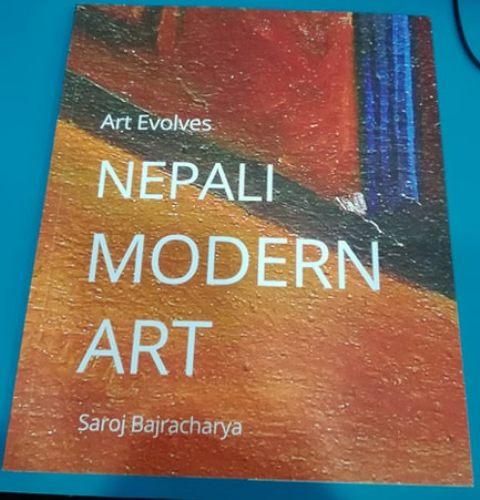Nepali artist and the chancellor of the Nepal Academy of Fine Arts (NAFA), works extensively in the field of symbolism and surrealism. Her journey to prominence has been a rollercoaster ride, further fueled by the recent demise of her beloved daughter Shivata, a grief she overcame by starting a foundation that provides scholarships to students studying Bachelors of Arts.
What is life to you?
Life is basically a journey of uncertainty – of happiness and sadness. Amid all the chaos and with every passing hour; you grow mature and realize that there exist bigger dimensions to life. Taking my personal life as an example, in the past, I was running towards materialistic success. Although the transition has been slow, I am currently guided by philosophy and spirituality, which I believe gives more meaning to my life.
How do you cope with personal life hurdles such as the death of your beloved daughter?
A person is born with a closed fist and dies with open hands. A newborn’s clenched hands suggest his aspiration to achieve materialistic success throughout his lifetime while a dead open hand demonstrates how we are not to take any of that into our next life. What really stays is our work and legacy.
‘Art Evolves: Nepali Modern Art’: Review

The death of my daughter was one of the most tragic aspects of my life. I came back to normalcy by understanding that death is the ultimate truth of mankind. I wear a Sun as my tika to acknowledge that all of us are to die one day. Like the Sun, a universal truth that everything perishes cannot be long hidden by clouds of false expectations.
What were some turning points in your life?
After completing my university in Lucknow, for years, I struggled as an artist. I worked hard and opened my gallery in 1986 which marked the rise of my career as an established artist. I exhibited 45 of my works in a 1986 NAFA exhibition and secured a scholarship from the British Council to study arts in the UK, which broadened my understanding of surrealism and symbolism.
What inspired you to do the works that you do?
In my school, there was a tradition of collecting teacher’s remarks during the last few days at school. One of my favorite teachers, who knew I had potential in the field of arts, made a remark that has stayed with me since: ‘KalaKala keliyenahi, Jeewankeliyehonachaaiye’ (Art should not be for the sake of art, it should provide meaning to the lives we lead).
Her remarks inspired me to voice concerns regarding negative aspects of our societies, including violence against women and inequality, which I have done by making comparisons between mythologies that praise women as Goddess while real practices show otherwise. In recent years, I have worked extensively in the issue of climate change and political turbulence, hoping to create bigger impacts through art.
Whose works do you like or idolize?
I like the works of Manoj Babu Mishra; he has a distinct approach to arts and his ‘Monalisa Series’ is a unique amalgamation of surrealism and symbolism.
I also admire works by Shasikala Tiwari, Shashi Bikra Shah and Durga Baral. Apart from these Nepali artists, Salvador Dali’s ‘Beyond the Imagination’ works extensively to suggest that the time is melting – a genre that absolutely fascinates and inspires me.
Any suggestions you would give aspiring artists?
A few, life is not easy but don’t ever forget your aim or stop doing the hard work that is required of you to master your craft. No matter how long it takes for your work, to shine through, believe in yourself and believe that your work will eventually attract more opportunities.








































